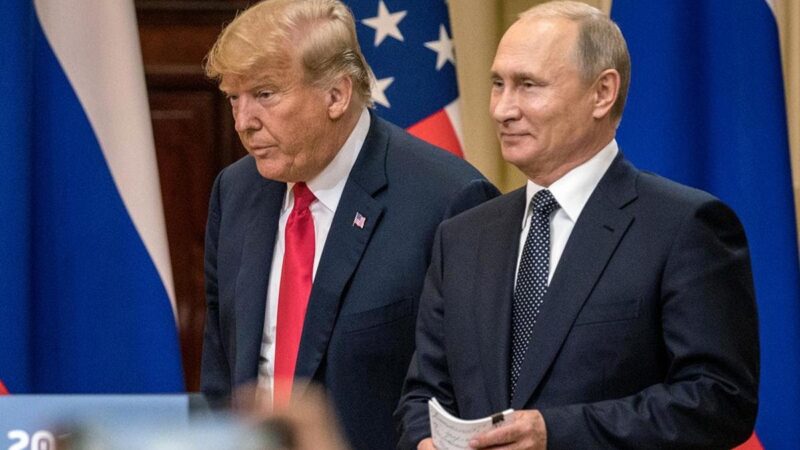The recent phone call between Donald Trump and Vladimir Putin could mark a turning point in US-Russia relations. Let’s examine the potential risks and opportunities that may emerge following their conversation.
Putin and Trump Signal an Informal Line of Communication
To begin with, the Kremlin has neither confirmed nor denied reports of a phone call between the two leaders. A diplomatic exchange of this nature would typically require confirmation from both sides. For example, when Trump spoke with Chinese President Xi Jinping, both American and Chinese officials promptly issued statements—though with slight differences in content. The very act of releasing official post-call statements serves as undeniable proof of the conversation.
In this case, while there is little doubt that Trump did indeed speak with Putin, the nature of the call remains uncertain: was it a formal diplomatic exchange or an informal discussion?
It is also evident that the war in Ukraine was a key topic of discussion. Notably, Trump hinted at multiple conversations, as when asked how many times he had spoken with Putin, he replied, “I’d better not say.” He also emphasized that Putin is eager for a swift resolution to the conflict to prevent further loss of life. However, without an official post-call release, we are left with speculation rather than concrete details. Nonetheless, the situation underscores one thing: both leaders are intentionally highlighting the existence of an informal line of communication between them.
Contrasts and Intrigues: Ukraine Frustrated by US-Russia Backchannel Talks
Meanwhile, US relations with Ukraine remain in the official, public sphere. It has been announced that American and Ukrainian officials will soon meet in Europe, and a semi-official statement confirmed the upcoming visit of US special envoy Keith Kellogg to Kyiv. Kellogg is known for advocating a “freeze” on the front line through a ceasefire and the creation of a demilitarized zone. Additionally, Ukrainian President Volodymyr Zelensky’s visit to the United States has been announced—though without a confirmed date. Trump has also confirmed this information.
In contrast, there has been no word on whether Kellogg will visit Moscow. Either such plans are being kept secret, or they do not exist—both possibilities fueling further anxiety in Kyiv. The Ukrainian government has long been frustrated by Washington’s closed-door discussions with Moscow, fearing they are being left out of negotiations concerning their own future.
Ukrainian media outlets are already portraying a potential Zelensky-Trump meeting as a “small future victory.” They claim the lack of official confirmation regarding a Putin-Trump call means no major agreements were reached, reassuring Ukrainians that they are not being sidelined. Reports emphasize that Trump has also promised to speak with Zelensky and may meet him next week. Ukrainian journalists further remind their audience that Zelensky was the first foreign leader to speak with Trump after the November 5, 2024, US election results.
Such attempts to frame the situation positively are understandable, given Ukraine’s increasing diplomatic isolation on the world stage. It is also worth noting that, according to WikiLeaks, 90% of Ukrainian media has been funded by USAID—a revelation from a since-deleted agency report.
Key Risks for Ukraine
Ukraine currently faces several major risks in this evolving geopolitical landscape.
- Lack of Transparency in Global Negotiations
Ukrainian diplomats often remain “behind the scenes” (largely due to their own strategic missteps), leaving them with little insight into what foreign leaders are discussing or what terms are being negotiated. With no access to real intelligence, Kyiv is left guessing—delaying its own diplomatic strategy and potentially weakening its position. - Greater Concessions from Ukraine Than Russia
It is increasingly clear that Ukraine will be forced to make larger concessions in negotiations than Russia. Ending hostilities alone will not be enough. Unlike Trump, Zelensky insists that Ukraine and the EU must be included in any diplomatic discussions. Realizing the worsening situation, he is now working to elevate negotiations to the highest possible official level.
Zelensky is reportedly prioritizing this goal above all else, according to sources close to his administration. In a desperate bid for American support, he has even included rare earth resources in Ukraine’s proposed peace plan, hoping to use them as leverage for securing a more favorable deal.




